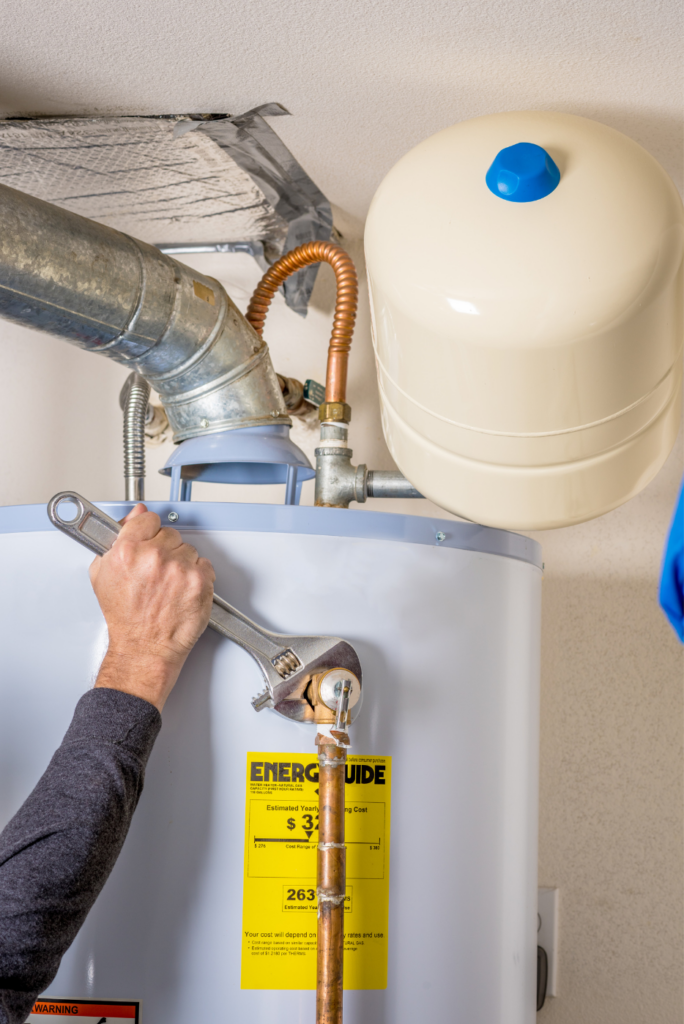What To Do For Common Heater Malfunctions
What To Do For Common Heater Malfunctions
Blog Article
We've discovered this great article on Water Heater Repair and Troubleshooting below on the internet and thought it made sense to share it with you in this article.

Envision starting your day without your routine warm shower. That already sets a bad tone for the rest of your day.
Every residence requires a trustworthy hot water heater, but only a few know how to take care of one. One simple way to maintain your water heater in leading shape is to look for faults frequently and also fix them as quickly as they appear.
Bear in mind to turn off your water heater prior to sniffing about for faults. These are the hot water heater mistakes you are most likely to come across.
Water too hot or as well cool
Every hot water heater has a thermostat that identifies just how hot the water gets. If the water entering your home is as well warm regardless of establishing a hassle-free optimum temperature, your thermostat may be malfunctioning.
On the other hand, as well cold water might be because of a stopped working thermostat, a busted circuit, or inappropriate gas circulation. As an example, if you utilize a gas hot water heater with a busted pilot light, you would certainly get cold water, even if the thermostat remains in perfect condition. For electrical heating systems, a blown fuse might be the culprit.
Not nearly enough hot water
Hot water heater come in lots of dimensions, depending on your warm water needs. If you run out of hot water before every person has actually had a bath, your water heater is as well little for your family size. You ought to take into consideration setting up a bigger water heater storage tank or opting for a tankless water heater, which takes up much less space as well as is much more long lasting.
Weird noises
There are at least five kinds of noises you can hear from a water heater, but the most common interpretation is that it's time for the hot water heater to retire.
First of all, you should be familiar with the regular appears a hot water heater makes. An electric heater might seem different from a gas-powered one.
Standing out or banging noises typically mean there is a piece of debris in your tanks, and also it's time to cleanse it out. On the other hand, whistling or hissing sounds might merely be your shutoffs letting some stress off.
Water leaks
Leakages might originate from pipes, water links, valves, or in the worst-case circumstance, the tank itself. Over time, water will wear away the tank, and also find its way out. If this takes place, you need to replace your hot water heater as soon as possible.
Nevertheless, before your modification your entire container, be sure that all pipes are in area which each valve works completely. If you still require aid recognizing a leakage, call your plumber.
Rust-colored water
Rust-colored water means one of your water heater elements is rusted. Maybe the anode pole, or the storage tank itself. Your plumber will certainly have the ability to determine which it is.
Lukewarm water
Despite how high you set the thermostat, you won't obtain any warm water out of a heating system well past its prime. A water heater's performance might reduce with time.
You will certainly additionally obtain lukewarm water if your pipes have a cross link. This indicates that when you switch on a tap, warm water from the heating system streams in alongside normal, cold water. A cross connection is very easy to area. If your hot water taps still run after closing the water heater shutoffs, you have a cross connection.
Discoloured Water
Corrosion is a significant reason for unclean or discoloured water. Rust within the water container or a stopping working anode pole could create this discolouration. The anode rod secures the tank from rusting on the within and must be checked yearly. Without a pole or a correctly working anode pole, the hot water swiftly wears away inside the tank. Get in touch with a professional water heater professional to determine if replacing the anode rod will take care of the trouble; otherwise, replace your water heater.
Conclusion
Ideally, your water heater can last ten years prior to you require an adjustment. Nonetheless, after the 10-year mark, you might experience any one of these mistakes a lot more regularly. At this point, you should include a brand-new water heater to your spending plan.
How To Troubleshoot 3 Common Water Heater Problems in Twin Cities
The Water Heater Is Leaking
A leaky cold water inlet valve A loose pipe fitting A leaky temperature and pressure relief valve A corroded anode rod A cracked tank Turn Off Your Water Heater:
Shut off your gas water heater by turning the gas valve on the unit to the “OFF” position. Shut off your electric water by switching its power off at your electrical panel. Look for a two-pole breaker labeled “water heater” and turn it to the “OFF” position. Move the ball valve connected to the water heater to be perpendicular to the piping at a 90° angle. Look for the Leak:
Depending on whether the water is coming from the tank's top or bottom, you’ll want to look for the leak in different locations.
If the leak comes from the top of the tank, carefully look for water escaping from the cold water inlet valve or loose pipe fittings. Rusted hot and cold water valves can have loose connections with the tank, with water leaking out of them.
https://mspplumbingheatingair.com/blog/how-to-troubleshoot-3-common-water-heater-problems
We had been guided to that report on Water Heaters Problems through someone on our other web page. Remember to take the time to promote this entry if you enjoyed reading it. Thank-you for going through it.
Plumbing challenges? Get immediate solutions. Report this page